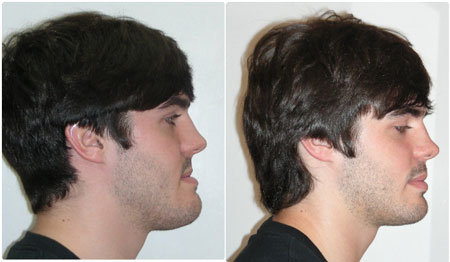Orthognathic Surgery in Philadelphia and Bensalem, PA


Surgical orthodontics, also known as orthognathic surgery, is a type of orthodontic treatment Dr. Slutsky uses to correct severe cases that include bad bites, jawbone abnormalities, and malocclusion.
In some cases, the upper and lower jaws don't meet properly. In these situations, we not only need braces to straighten the teeth, but we also need the patient to get jaw surgery to align the jaws. Sometimes the problem is that the lower jaw is too big (underbite), sometimes the lower jaw is too small (overbite), and sometimes multiple factors are involved.
When it comes to orthodontic surgery, experience and expertise matter! Dr. Slutsky has treated many patients over the years with jaw surgery. He is an Associate Professor of Orthodontics at the Kornberg School of Dentistry at Temple University, and he presents many surgical cases to dental students and orthodontic residents every year. He is highly experienced at achieving excellent results in orthognathic surgery cases.
How does orthognathic surgery work?
Dr. Slutsky will first evaluate your malocclusion (crooked teeth) and evaluate an X-ray to determine if orthognathic surgery is needed. In addition, you'll meet with an oral surgeon to determine your ideal treatment plan.
After a thorough diagnosis and treatment plan is determined by both Dr. Slutsky and your oral surgeon, Dr. Slutsky will place braces. It typically takes about 18 to 24 months to move the teeth before jaw surgery can be performed. With braces on your teeth, the oral surgeon moves one or both jaw bones into a correct bite. Usually, you'll need to wear braces for an additional six to 12 months after surgery before treatment is completed.
What are the risks and rewards of orthognathic surgery?
While any surgical procedure has risks, the rewards of having a correct bite are usually well worth it. The process of orthognathic surgery is not new, and it has been successfully performed for many years in practices and hospitals.
It is important to weigh the advantages of orthognathic surgery versus non-surgical treatment. Patients often can be treated without surgery and receive a large improvement in function.
Each case is different, and the only way to know if orthognathic surgery is the best course of treatment for your smile is to schedule a consultation at our Philadelphia or Bensalem orthodontic office.
